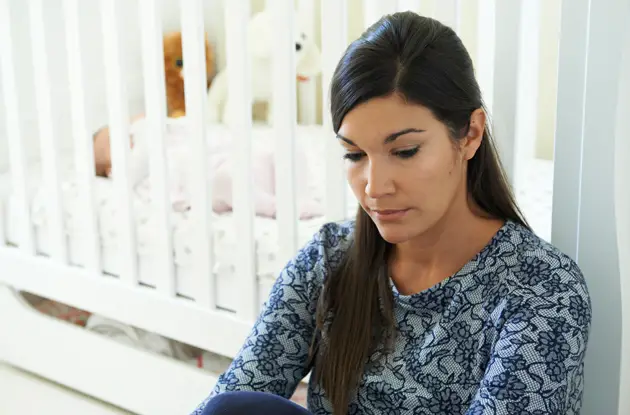
Changes That Are Normal in Your Body Postpartum
Medical experts share what new moms can expect—physically and emotionally—when they’ve finished expecting.
Get can’t-miss family activities sent to you!
Get the Best Kid-Friendly Activities
Sent to You Weekly!
The 411 on Postpartum Volatility
Beyond bodily changes, new mothers should monitor their emotions and understand the signs of postpartum volatility. Dr. Dweck prefers not to call this issue “postpartum depression” because that terminology can be pejorative. She says it is one of the challenges women are most concerned about, after postpartum weight gain.
“The emotional volatility that comes about after having a baby, in a good way and in not such a good way, is notable,” she says. “And this is combined with sleep deprivation, which doesn’t help. So, it becomes a concern: How am I going to manage everything?”
Certain populations of women, Dr. Dweck says, are more prone to developing postpartum volatility. Among those most vulnerable are first-time mothers, women who are part of underserved populations, and women who have a history of anxiety or depression during pregnancy. If you start feeling down after having your baby, seek help as soon as possible, and try to get some sleep—it’s vital in managing these feelings, Dr. Dweck emphasizes.
Dr. Tusheva says “post-baby blues” are very common because mothers are often overwhelmed when they bring the baby home and the responsibilities of motherhood are fully realized. “It can happen to any woman, whether it’s her first time having a baby or third or fourth time being a mom,” she says. “We all can be overwhelmed by other people, the social pressure, [feeling] like we need to be the best mother we can be, and the attention imposed on us by our family—our moms, our husbands, mother-in-law, and other people who care about us.”
But when post-baby blues stick around for longer than a short while, they can become more serious. It is imperative to seek medical help.
“Once in a while the symptoms can persist and reach postpartum depression, which can be a very dangerous condition,” Dr. Tusheva says. “If she feels down, overwhelmed, stressed, if there’s any thought of harming herself or baby, all of those symptoms should be discussed with an obstetrician or a primary care physician or a psychiatrist. Someone who can help [her] feel better, as opposed to leaving the condition untreated and having it get worse.”
Hospitals conduct postpartum screenings before sending women home with their new babies, but Dr. Tusheva says every woman should be aware of what postpartum depression could potentially look like. Many things contribute to how a woman is feeling after giving birth, such as sleep, the baby’s health, the baby’s sleep patterns, the availability of support at home, socioeconomic status that relates to available support, or a history of anxiety or depression.
“If a woman is finding herself feeling helpless, hopeless, if she is catching herself thinking any type of thoughts concerning harming the baby or giving the baby away or how much her life would be easier without the baby, if she finds herself just being sad and upset,” Dr. Tusheva says, “I would say for days in a row as opposed to moments of temporary feelings or temporarily upset, then all of those are the concerning factors for developing PPD.”
Treatment for postpartum depression varies on an individual basis. The most important thing to do is seek help so your doctor and psychiatrist can help you feel better, sooner.
The Bottom Line
There are essential steps, Dr. Dweck says, that mothers can take in ensuring they remain healthy and happy after pregnancy. One of the most important things you can do is educate yourself about what to expect in the postpartum space.
“Be conscious, be mindful. Women these days, particularly in the communities I practice in, take a lot of care and try to empower themselves with information and education, whether it’s online or with other moms or new moms or family members,” Dr. Dweck says. “But often times you get misinformation out there. So, I think the bottom line is just to always check if something is out of the ordinary with your health care provider.”
Dr. Scharfman emphasizes the importance of sharing everything with your doctor—and speaking up if something doesn’t feel right. “Having a new baby is really hard,” she says. “If you have any questions, don’t hesitate to ask. If you think something is wrong, don’t just tell the nurse, tell the doctor. Don’t be afraid to reach out.”
When dealing with postpartum blues, Dr. Dweck says, do not be ashamed to talk about what you’re feeling. “And if you feel like you’re spiraling in that direction, please don’t suffer in silence. Get some assistance and talk to your health care provider,” she says. “It’s not a shameful situation. It is what it is, and it really is out of people’s control most of the time. Don’t be afraid to ask for help. That’s my biggest advice.”









